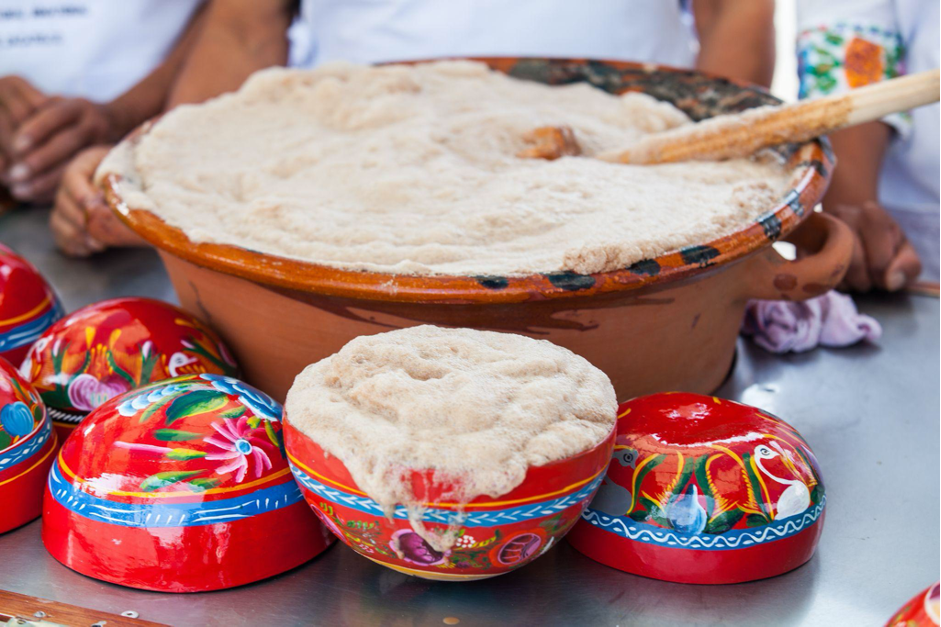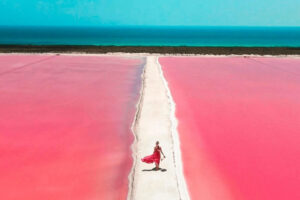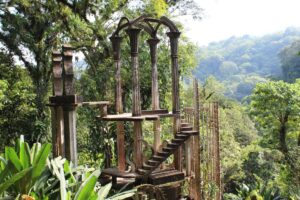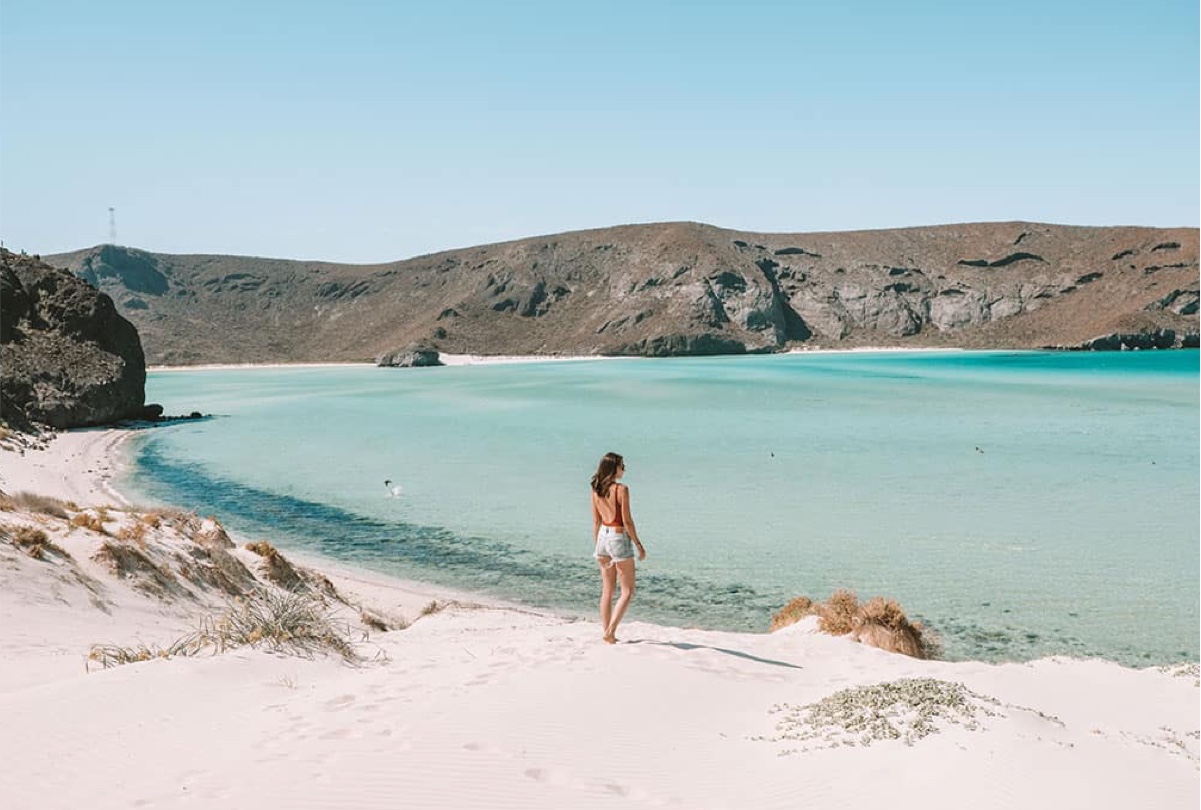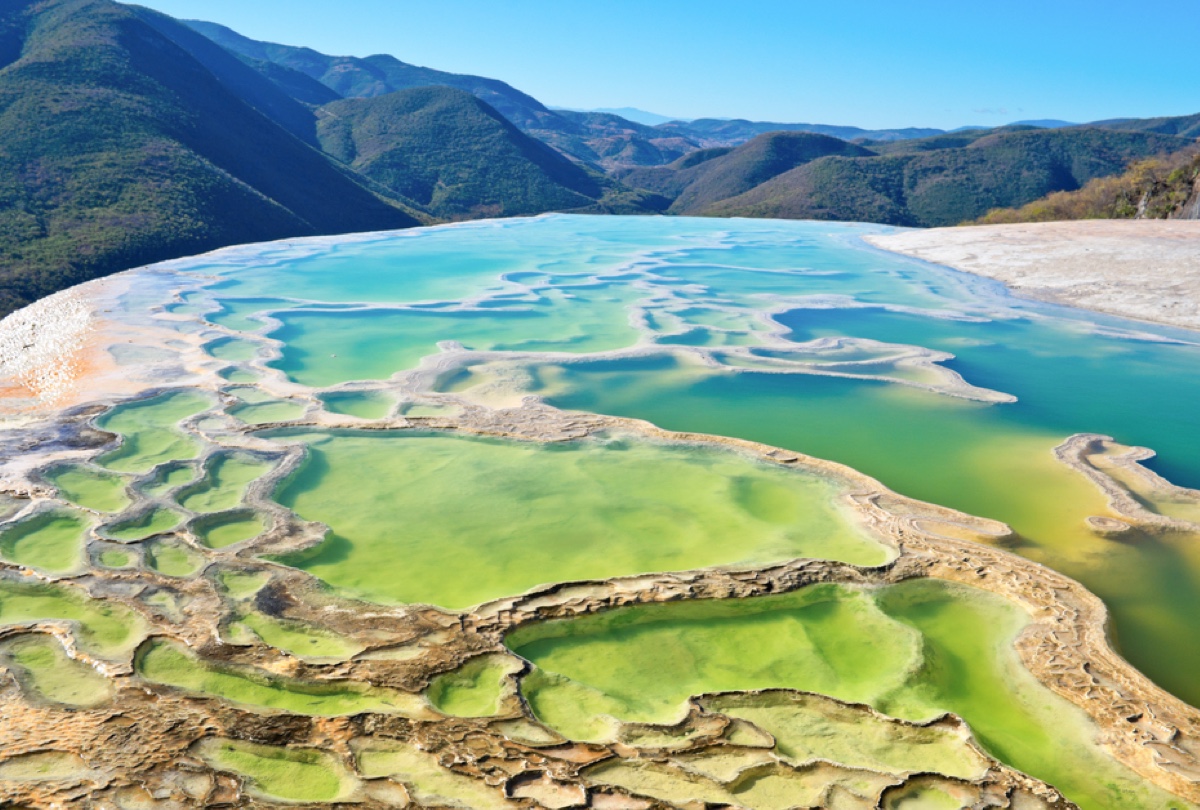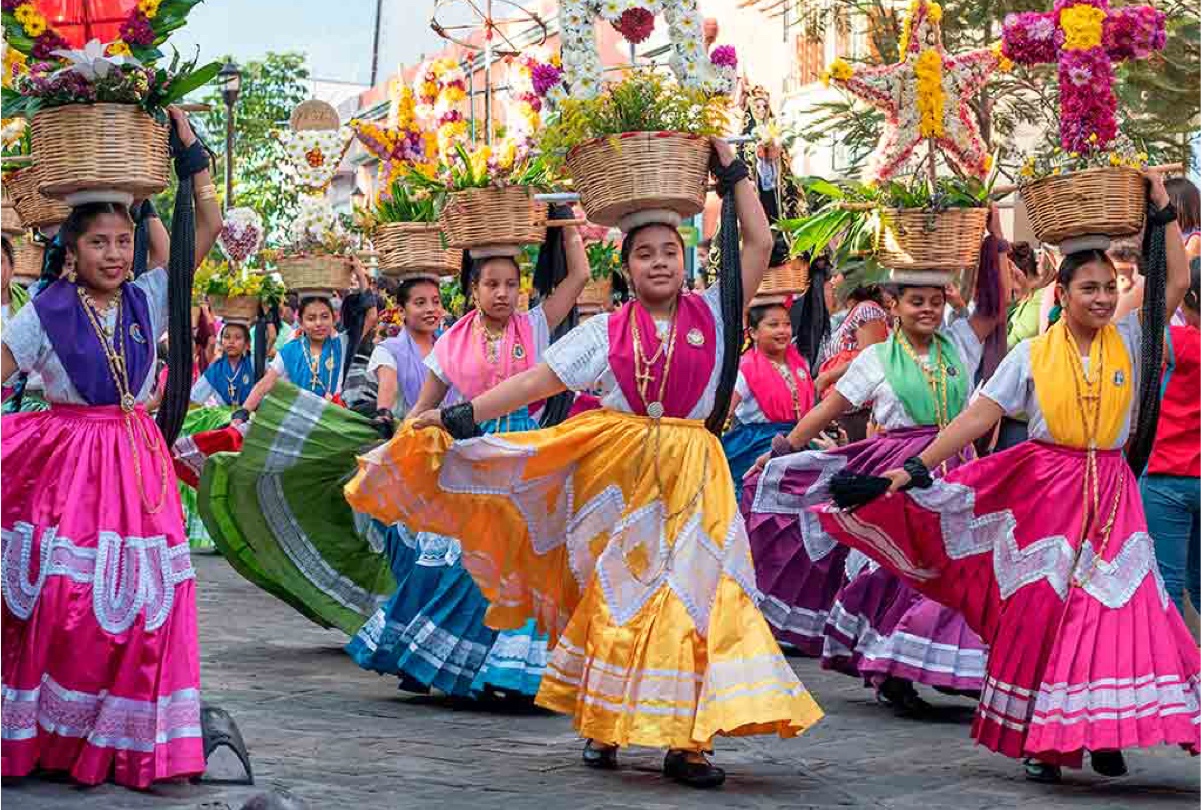Tlaxcala has preserved its charming essence throughout time, its great wealth has been inherited by its ancestors from generation to generation, which is why it is considered one of the most outstanding states in Mexico.
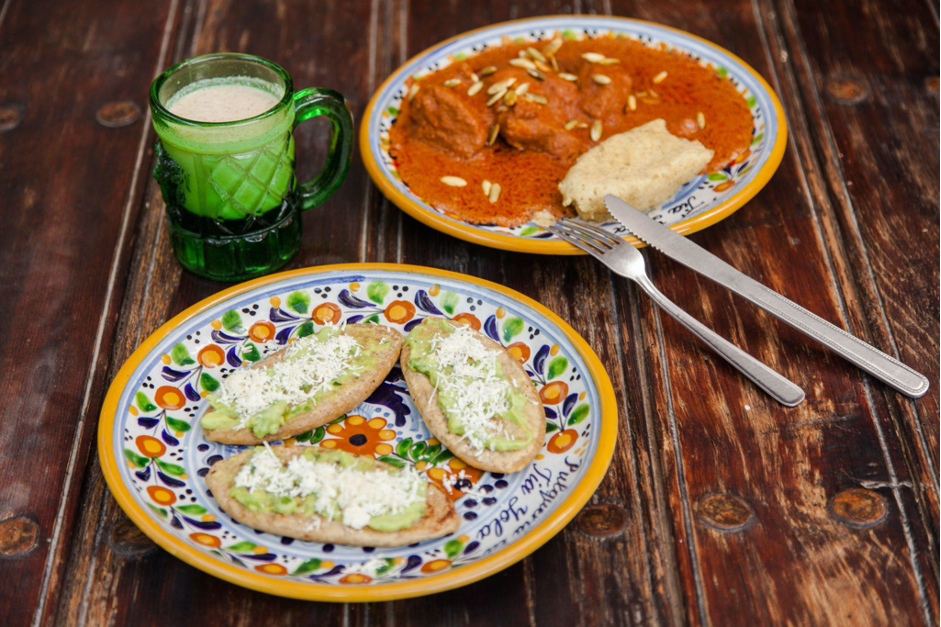
A very important factor of this richness is its gastronomy. Tlaxcalan cuisine is an explosion of diverse flavors, it is a journey into the past of this wonderful region while delighting your palate with its exquisite dishes and soft drinks.
Whatever the season in which you travel to this destination, Tlaxcala has beverages and dishes for all occasions.
It is worth mentioning that the most precious treasure for the locals when it comes to preparing these delicacies is the traditional recipe, since today many of the original methods are still preserved, thus honoring their ancestors.
In addition to its exquisiteness, the foods of this place have high levels of nutrients and some can be used for medicinal purposes, in its variety include dishes that have been declared Intangible Heritage.
Atole Morado
Recently the ancestral drink Atole de Maíz Morado was awarded as the most representative dish of Mexico, this is an Otomí recipe from the municipality of Ixtenco; it is made with native corn of black-purple colors, cinnamon or piloncillo and sugar and can take up to 36 hours to prepare, quite an art.
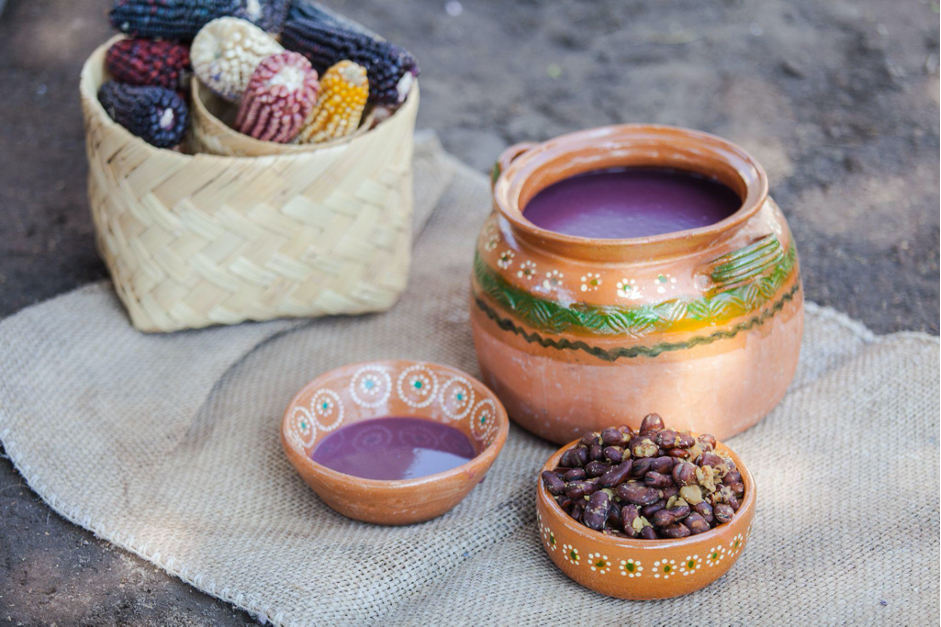
Pulque
One of the most emblematic prehispanic beverages in history, to which great medicinal properties are attributed, known as the “elixir of the gods”. It is made from the fermentation of agave nectar, becoming a complex and frothy drink, perfect to enjoy at any time of the year.
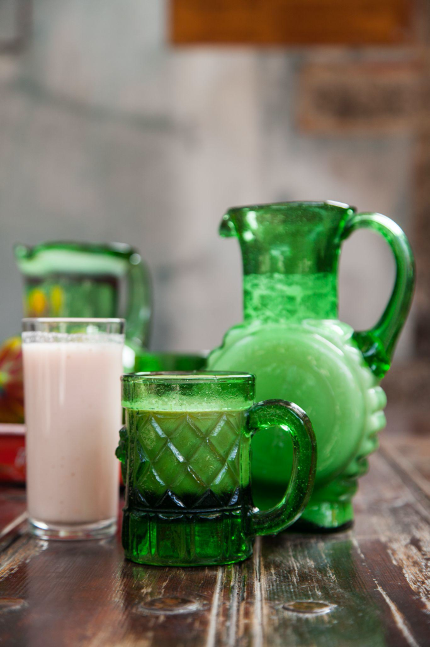
Chinicuiles
Exotic and luxurious regional dish, the maguey worm better known as chinicuil is an insect with high protein levels, beneficial for health, without a doubt a delicious and healthy pleasure. They can be served as snacks or included in sauces, tacos or more elaborate dishes.
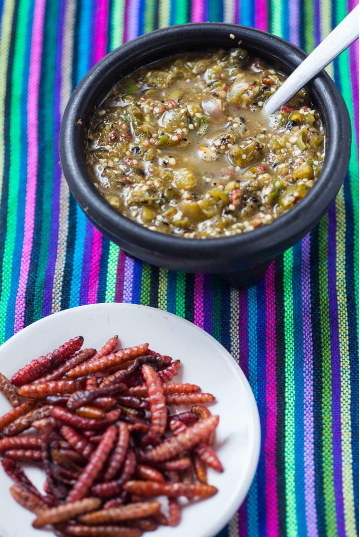
Agua de Barranca
An ancestral refreshing and fizzy drink that owes its name to its similarity to the water that runs through the ravines. The ingredients consist mainly of cocoa, corn, cacahuazintle and haba bean. It is traditionally served cold and drunk in a jícara. This drink was declared Intangible Cultural Heritage of the State.
